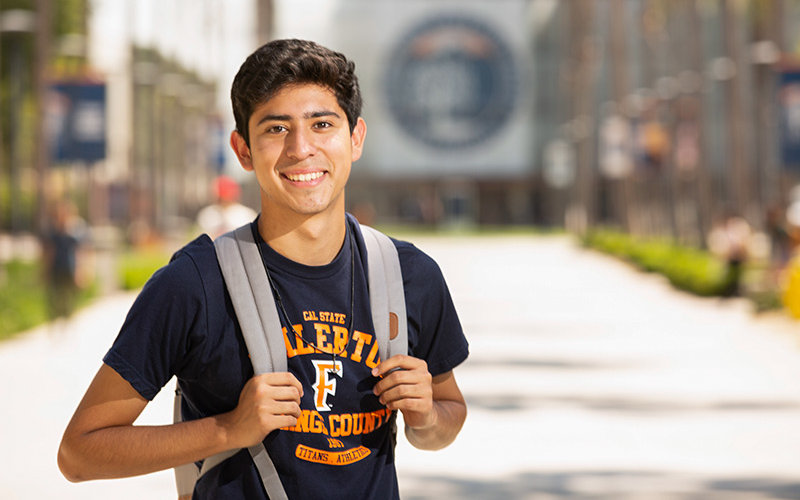
Last spring, 140 out of 360 Cal State Fullerton student-athletes participated in the university’s DEGREE (Division 1, Eligibility, Graduation, Retention, Engage, Empower) Program, which was recently awarded a NCAA Accelerating Academic Success Program multi-year grant.
DEGREE was developed to better support underserved, first-generation and/or academically underprepared student-athletes. It also offers proactive support for potential academic progress rate concerns. DEGREE provides flexibility, through close collaboration with different teams, based on the student-athletes’ individual needs and the promotion of academic resilience.
Programs like this help student-athletes stay on track for graduation and focused on academics while weathering challenges, such as having their winter and spring sports seasons cut short due to COVID-19.
“We believe that our student-athletes are students first,” said Meredith Basil, associate director of athletics, senior woman administrator and director of athletics academic services. “This means that academics must be their first priority as we are preparing them for success in life. We also know that success in the classroom is often coupled with success on the playing field.
“A student-athlete must meet certain metrics in order to be eligible to compete in intercollegiate athletics,” she continued. “These metrics vary from year to year and support timely progress toward graduation.”
One of the reasons for this success is likely the range of programs, services and early intervention opportunities available to student-athletes.
“Our goal is to provide proactive academic support services for our student-athletes,” Basil said. “We want to help student-athletes before their grades start to fall or they get too far behind. Fortunately, they are now coming to us at the first signs of trouble … and we are very proud of our student-athletes and their overall academic success.”
Balancing the rigors of Division I Athletics (time demands include practice and travel in addition to games) coupled with academic priorities and life commitments, requires balance. Student-athletes may also have to miss several classes during their competitive seasons, increasing the risk of falling behind.
“We work with our student-athletes to help them become more intentional in their planning,” Basil continued. “Since they know when they’ll need to miss class, they need to plan with their instructors, in advance, to make up any missed work or assignments.
“We set out specific objectives for them,” she said. “We work on academic survival skills, including time management, goal setting and organizational/planning skills. Each semester, all of our student-athletes took advantage of our assistance by checking in with our academic counselors.
“Most importantly, we are focused on building a sense of belonging so our student-athletes continue to build confidence,” Basil said. “We also have had great success in providing holistic support and preparing them for future success with programs such as Fullerton Athletics Career Expo. We have an amazing and dedicated Athletics Academic Services team that puts its whole heart into its work with our student-athletes.
“In addition, our Titan student-athletes are the best in the nation and we could not be more proud of their hard work in the classroom and on the playing field,” she continued. “It is an honor and privilege to work with them. Our coaches, faculty athletic representatives, athletics staff and administration are incredibly supportive, as are the president, director of athletics and vice president for student affairs.”
For more information about Athletics Academic Services, visit their webpage.
Contact: Valerie Orleans, vorleans@fullerton.edu